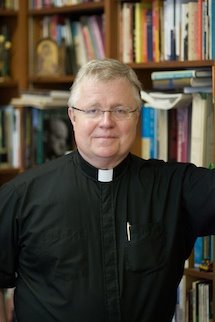As most of you know I walked Erin down the aisle on her wedding day on October 11. The ceremony and the celebration turned out to be monumental and even better than we could have ever planned. Our whole family couldn’t stop talking about it in the days and weeks that followed. One thing that did strike me as funny was my daughter saying, “Dad you didn’t cry at my wedding.” I heard later that everyone was taking bets that I would probably cry because I cry at everything. Well, I did cry. I cried during the whole process of getting ready for that day as I imagined myself walking her down the aisle, dancing with her, repeating vows to her and Jason. I cried when we went food tasting for the reception and when I heard all the news about the dresses, the shoes and all the other little things from flower arrangements to the preparation of the church bulletin. I get misty often.
I had cried enough and on the other side of tears at a wedding is joy. I couldn’t be happier with Erin’s choice and I couldn’t be happier with the way things had worked out for them as a couple. I will say this, that the walk down the aisle with her was a long walk as you see your live flash before your eyes standing next to what once was a little girl. A father once told me that the walk down the aisle was like giving a marvelous hand crafted and expensive Stradivarius violin to a gorilla. This was not the case for me. It is a joyous and clear beginning, free of all the messiness that marriage becomes after years of living together. From the vantage point of the altar it all looks easy on that day. It’s later when you discover the bumps in the road and that this thing called marriage is not so easy.
I wouldn’t say that I’m good at marriage however, I have lots of experience. As I look out into our congregation or even at any given wedding I am presiding over, I can tell that many have gone down this road before. They have found like we all do that marriage can be more than difficult and sometimes even a disaster. Divorce is common and the church’s family is not immune from it. I don’t stand in judgment of anyone who has found his or her life shattered or painfully broken by divorce. When marriage works out, over the long haul, it has its great and wonderful moments.
I used this illustration at Erin and Jason’s wedding. I was saving it for a long time in anticipation of the moment when I could share it. It is a story from columnist Nicholas Kristof who grew up on a farm as I did. On a farm one butchers animals and I could always remember when that happened. At that time pigs became pork chops and as a boy I would cry.
Nicholas talks about geese:
Once a month or so, we would slaughter geese. When I was 10 years old my job was to lock the geese in the barn and then rush and grab one. Then I would take it and hold it by its wings on the chopping block while my Dad or someone else swung the ax.
The 150 geese knew that something dreadful was happening and would cower in a far corner of the barn, and run away in terror as I approached. Than I would grab one and carry it away as it screeched and struggled in my arms.
Very often, one goose would bravely step away from the panicked flock and walk toward me. It would be the mate of the one I had caught, male or female, and it would step right up to me, protesting pitifully. It would be frightened out of its wits, but still determined to stand with and comfort its lover.
In the end after the soap opera is finished, after the romantic movie is over, after George Clooney has carried Gwenyth Paltrow over the threshold we never find out what really happens. We always assume as we are told that they lived, “ Happily Ever After.” Making movies about marriage is usually boring or in rare cases like when the famous Swedish director Ingmar Bergman produces ones like “Scenes from a Marriage” or “Cries and Whispers” marriage can be terrifying. At times a friend of mine would say marriage is like a Federico Fellini movie - who can understand it?
Nevertheless that picture of a protesting goose could be a symbol of what a life long commitment is all about. As you deepen your journey in a relationship without knowing it, most days you don’t realize that you have discovered someone who accepts you for who you are. You have found a person who loves you when many times you are not very lovable and in that moment of difficulty puts their arms around you and tries to comfort you in your distress. Put differently, when you have found the right person they treat you like a Saint even though they are well aware that you are a sinner.














.jpg)